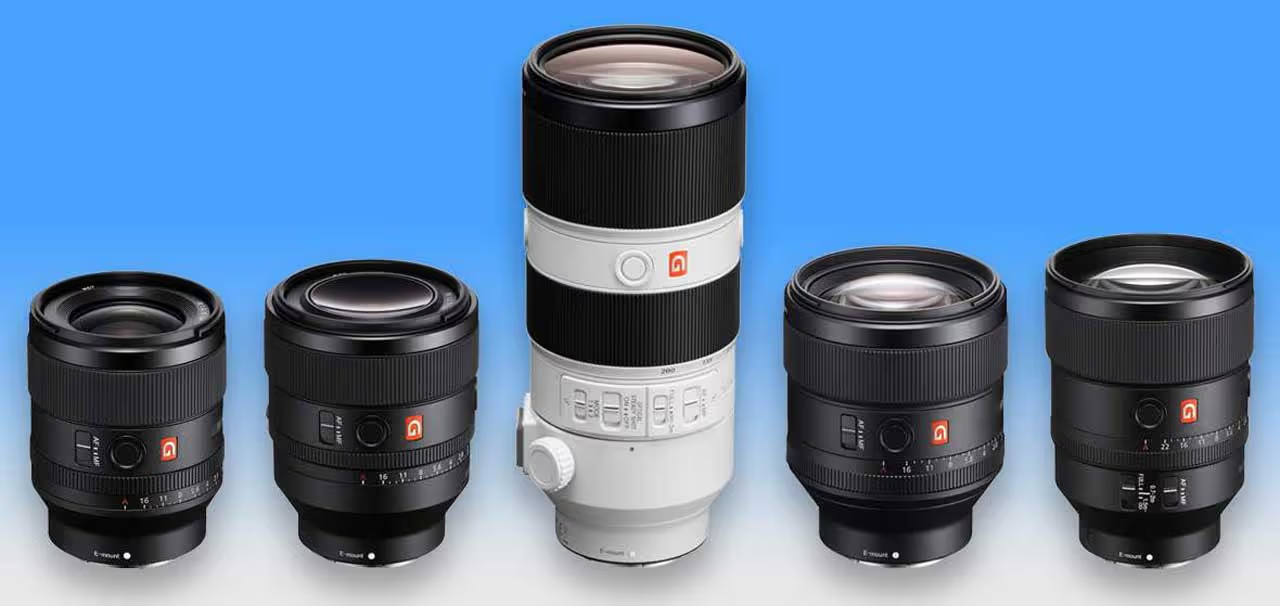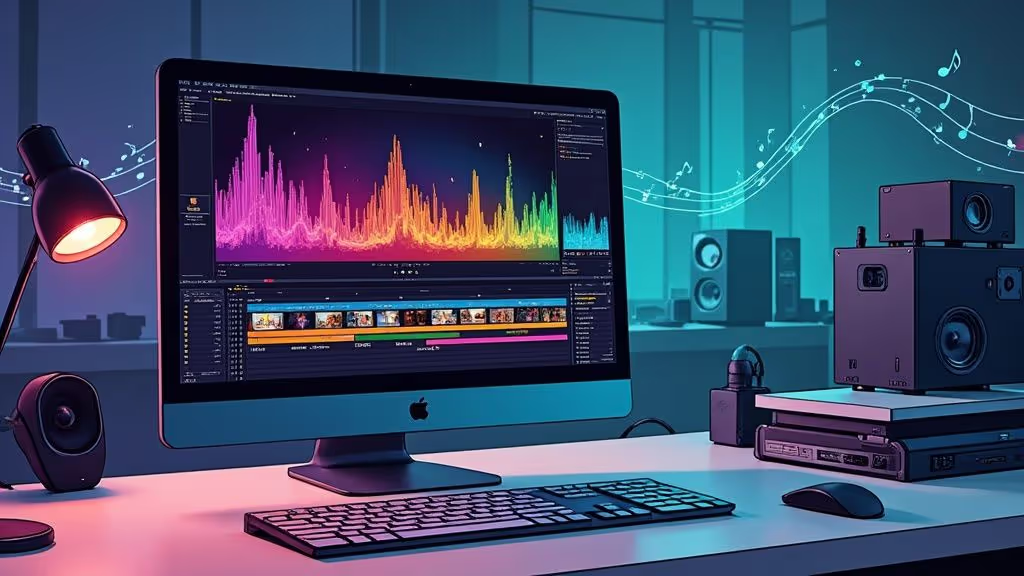Table of Contents
Portraits have been an essential part of art for centuries, and with the rise of digital photography, more and more people are taking up portrait photography as a hobby or profession. One of the most critical decisions a portrait photographer can make is choosing the right lens. The lens you use can make or break your portrait, affecting everything from the sharpness of the image to the depth of field.
When it comes to choosing the best lens for portraits, there are several factors to consider. The first is focal length. Generally, portrait photographers prefer lenses with a focal length between 50mm and 85mm, as this range provides a natural-looking perspective and allows for a comfortable working distance between the photographer and the subject.
Another critical factor to consider is aperture. A wide aperture, such as f/1.8 or f/1.4, can create a shallow depth of field, which can help to isolate the subject and create a beautiful, blurred background. This effect is especially desirable for portrait photography, as it draws the viewer's attention to the subject's face.
When choosing the best lens for portraits, it's also important to consider the type of camera you're using. Full-frame cameras require different lenses than crop-sensor cameras, and mirrorless cameras may require a different mount altogether.
In this article, we'll take a look at some of the best lenses for portraits, taking into account factors such as focal length, aperture, and compatibility with different camera systems. Whether you're a professional portrait photographer or just starting, we've got you covered.
Best Lenses for Portraits
As photographers, we know that the right lens can make all the difference in capturing the perfect portrait. Whether you're a professional or a hobbyist, having the right lens in your kit can take your portraits to the next level. After extensive research and testing, we've put together a list of the best lenses for portraits. These lenses are sure to provide you with stunning results and help you capture the essence of your subject.
BENOISON 85mm f1.8 Portrait Lens
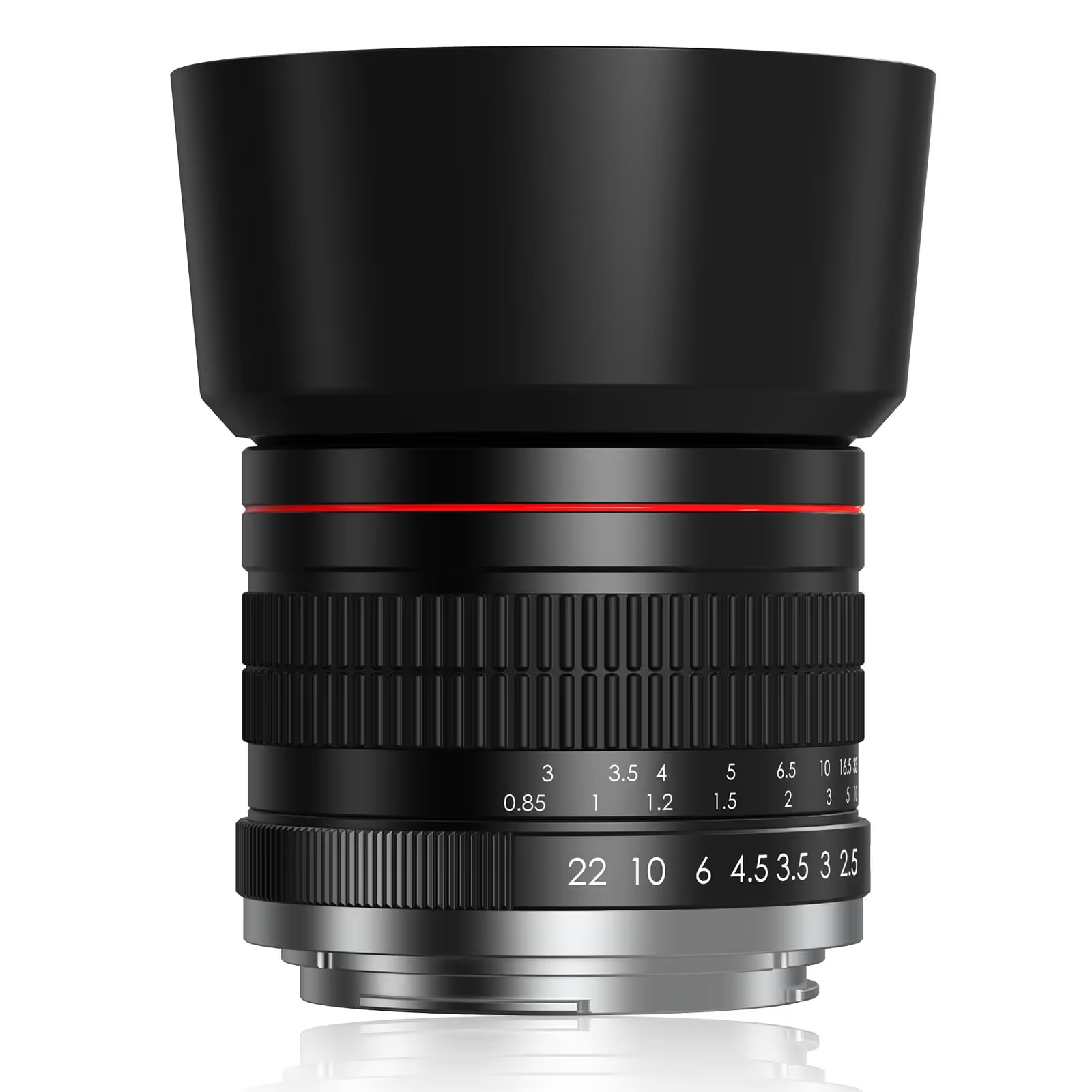
If you're looking for a versatile portrait lens for your Canon camera, then the BENOISON 85mm f1.8 Portrait Lens is worth considering.
Pros
- The large f1.8 aperture lens delivers fantastic background bokeh, which is perfect for portrait photography.
- The 85mm lens is ideal for taking half- and full-body shots, as well as close-ups of faces.
- The lens is compatible with a range of Canon EOS cameras, making it a versatile option for photographers.
Cons
- The lens is fully manual, which may not suit photographers who prefer electronic contacts.
- The aperture value cannot be displayed in the camera, so you'll need to adjust the shutter speed and ISO to take a beautiful photo.
- The lens is not recommended for beginners, as it requires some shooting experience to use effectively.
We found that the BENOISON 85mm f1.8 Portrait Lens produced sharp and vibrant images with beautiful bokeh. The lens is lightweight and easy to handle, making it a great option for photographers who need to move around a lot.
If you're looking for a budget-friendly portrait lens for your Canon camera, then the BENOISON 85mm f1.8 Portrait Lens is definitely worth considering. However, if you prefer electronic contacts and automatic settings, then this lens may not be the best option for you.
In conclusion, the BENOISON 85mm f1.8 Portrait Lens is a solid choice for photographers who want a versatile and affordable portrait lens for their Canon camera.
Lightdow 85mm F1.8 Medium Telephoto Manual Focus Full Frame Portrait Lens
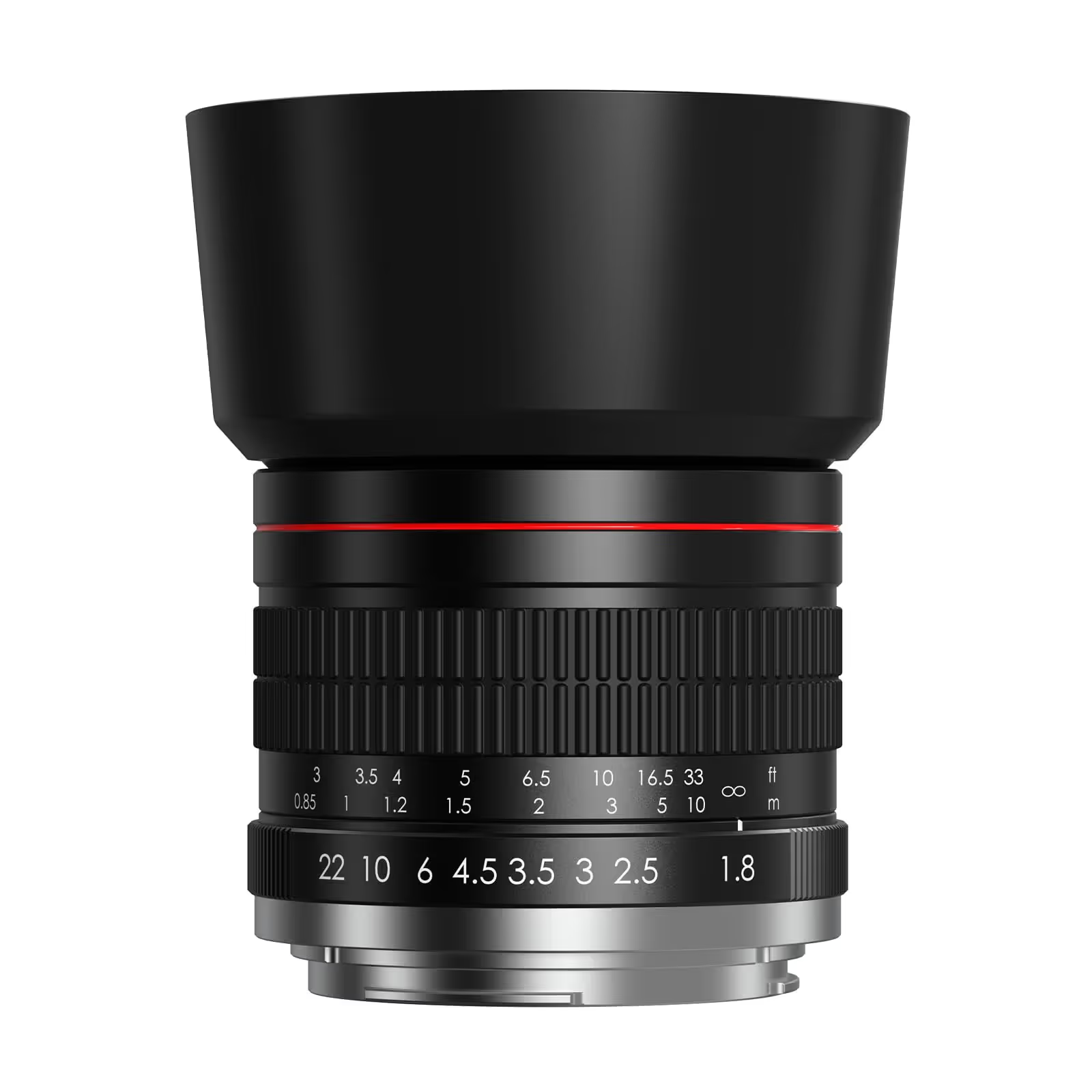
If you are looking for an affordable portrait lens with manual focus, the Lightdow 85mm F1.8 Medium Telephoto Manual Focus Full Frame Portrait Lens is a good option to consider.
Pros
- The large aperture of F1.8 allows for a pleasing bokeh quality, which enhances shallow depth of field images.
- The lens is compatible with a wide range of Canon EOS cameras, making it a versatile option for photographers.
- The smooth and large focus rings, along with the internal focusing and hybrid aspherical lenses, make it easy to adjust focus and capture sharp images.
Cons
- This lens requires complete manual focus operation on DSLR cameras, which may not be suitable for SLR beginners.
- Since this is a manual focus lens, it does not have electronic contacts, and your camera will not detect the lens when mounted. You need to switch to MF mode to use this lens correctly.
- The plastic material of the lens cap may not be as durable as other options.
In our experience, the Lightdow 85mm F1.8 Medium Telephoto Manual Focus Full Frame Portrait Lens is a reliable option for those who are looking for a manual focus lens for portrait photography. The large aperture and pleasing bokeh quality make it easy to capture stunning images with a shallow depth of field. The lens is also compatible with a wide range of Canon EOS cameras, making it a versatile option for photographers.
However, it is important to note that this lens requires complete manual focus operation on DSLR cameras, which may not be suitable for SLR beginners. Additionally, since this is a manual focus lens, it does not have electronic contacts, and your camera will not detect the lens when mounted. You need to switch to MF mode to use this lens correctly. Finally, the plastic material of the lens cap may not be as durable as other options.
Overall, if you are an experienced photographer who is looking for an affordable manual focus lens for portrait photography, the Lightdow 85mm F1.8 Medium Telephoto Manual Focus Full Frame Portrait Lens is a good option to consider.
Meike 85mm F1.8 Full Frame Auto Focus Medium-Telephone Portrait Lens Compatible with Canon EOS EF Mount Digital SLR Cameras 5D Mark IV 6D Mark II Black
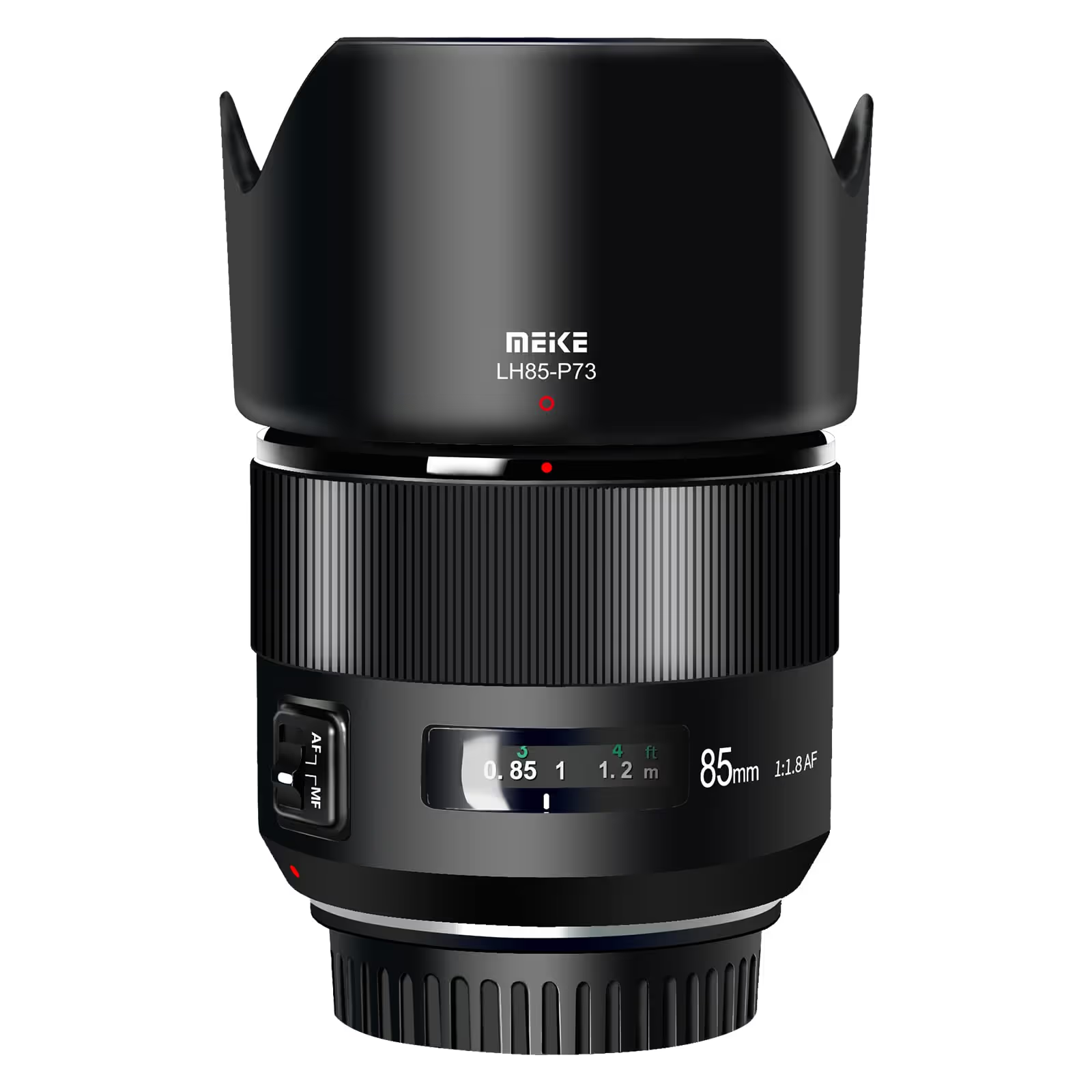
If you're looking for a budget-friendly lens that can deliver sharp and clear images, the Meike 85mm F1.8 Full Frame Auto Focus Medium-Telephone Portrait Lens may be a good option for you.
Pros
- The wide aperture of f1.8 with 9 diaphragm blades produces a super smooth round blur effect (bokeh).
- The lens is compatible with Canon APS-C frame EF-Mount cameras, and the equivalent focal length is 136mm.
- The lens features a micro USB firmware upgrade interface, enabling you to upgrade the lens online.
Cons
- The autofocus is slow and loud.
- The lens is a little dark around the edges wide open.
- The focusing motor may stop working after 18 months.
This lens is great for those who are just starting out with portrait photography and don't want to spend a lot of money on a lens. The wide aperture produces beautiful bokeh, making your subjects stand out. However, the autofocus is slow and loud, which may be a downside for some users. Additionally, the lens may be a little dark around the edges wide open, but this can be easily fixed in post-processing.
In conclusion, if you're looking for a budget-friendly portrait lens that can deliver sharp and clear images, the Meike 85mm F1.8 Full Frame Auto Focus Medium-Telephone Portrait Lens may be a good option for you.
Digital Nc 10x High Definition 2 Element Close-Up Lens
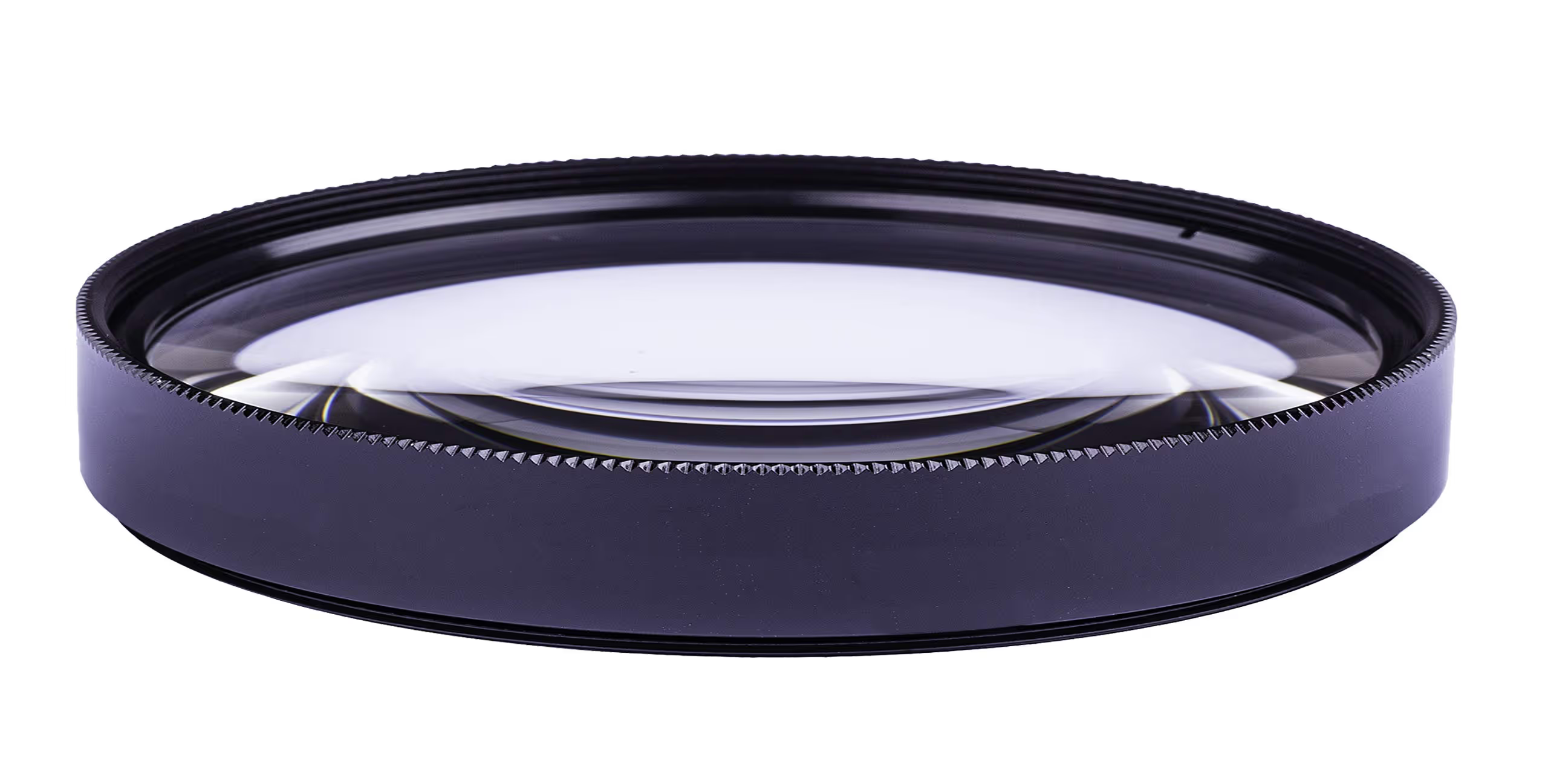
We highly recommend the Digital Nc 10x High Definition 2 Element Close-Up Lens for anyone looking to enhance their portrait photography.
Pros
- The lens is compatible with a wide range of DSLR cameras, including Nikon, Canon, Sony, Panasonic, Fujifilm, Pentax, and Olympus.
- The lens features high-index/low-dispersion 2 element optical glass, which results in clear and sharp images.
- The lens is fully multi-coated and threaded, and features an anti-reflection coating, which helps to reduce glare and ghosting.
Cons
- The lens has a minimum focal length of 0.1 inches, which may make it difficult to focus on subjects that are further away.
- The lens is relatively heavy, which may make it difficult to use for extended periods of time.
- The lens may not be suitable for use with low-quality lenses, as it may magnify any flaws in the lens.
We found that the Digital Nc 10x High Definition 2 Element Close-Up Lens is a great addition to any photographer's toolkit. The lens is easy to use and produces clear and sharp images, making it an excellent choice for portrait photography.
The lens is also very versatile, as it is compatible with a wide range of DSLR cameras. This means that you can use the lens with multiple cameras, making it a great investment for any photographer.
However, we did find that the lens has a minimum focal length of 0.1 inches, which may make it difficult to focus on subjects that are further away. Additionally, the lens is relatively heavy, which may make it difficult to use for extended periods of time.
Overall, we think that the Digital Nc 10x High Definition 2 Element Close-Up Lens is a great choice for anyone looking to enhance their portrait photography. The lens is easy to use, produces clear and sharp images, and is compatible with a wide range of DSLR cameras.
Holga HL-C 60mm f/8 Lens for Canon DSLR Camera(Black)
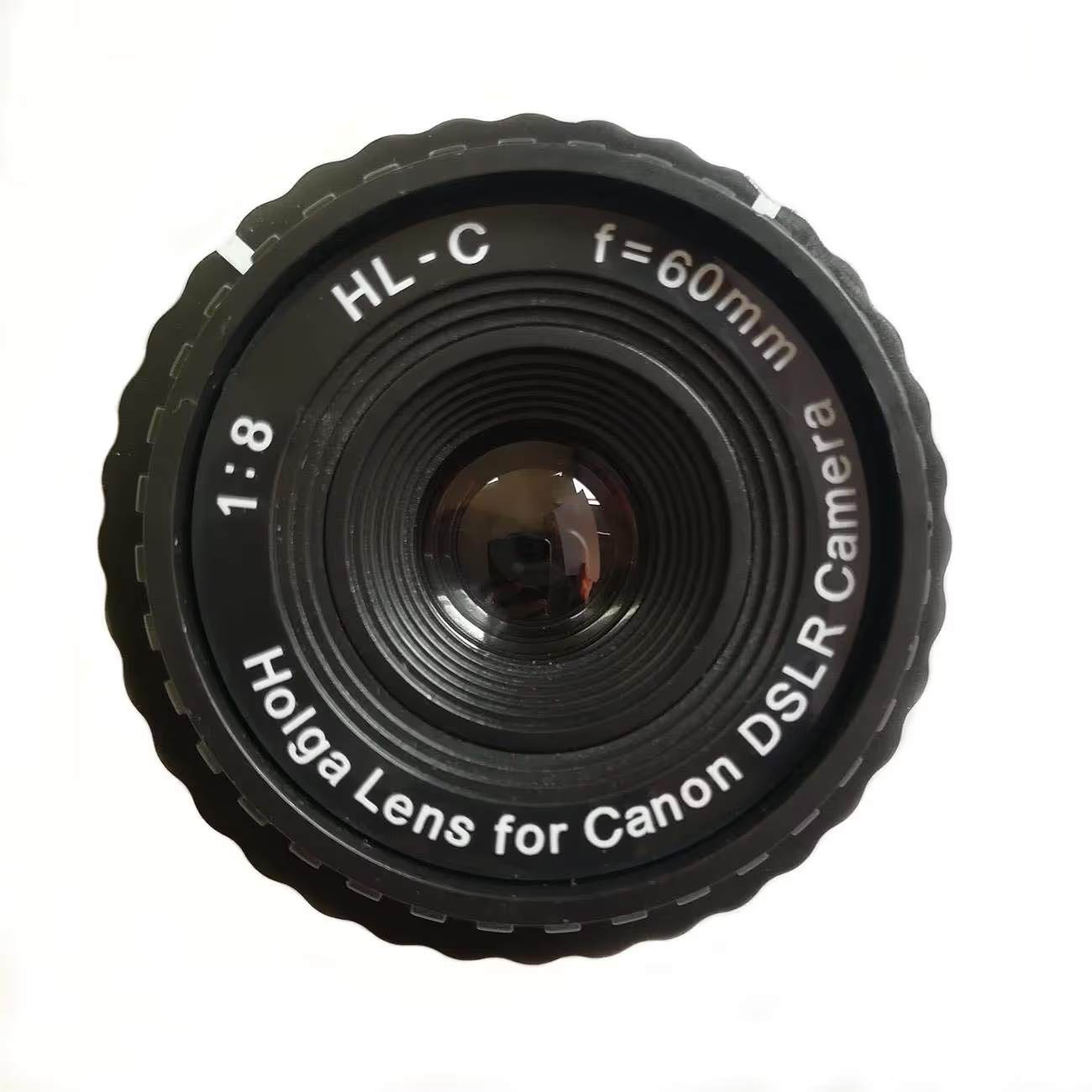
If you're looking for a lens that can provide you with unique and creative effects, then the Holga HL-C 60mm f/8 Lens for Canon DSLR Camera(Black) is worth considering.
Pros
- Provides soft and dark angle images that cannot be duplicated
- Compatible with any Canon DSLR/SLR Camera (with Canon F-mount)
- Affordable
Cons
- Fixed f/8 aperture can make the photos dark
- Poor contrast
- Barely passable center sharpness
The Holga HL-C 60mm f/8 Lens is a plastic lens that can be mounted directly onto Canon cameras. With this lens, you can achieve the Holga film camera's unique and distinctive vitality and effects. The lens has a near/far focus adjustment ring and a fixed f/8 aperture. The focal length is 60mm, making it perfect for portrait photography.
While the lens is affordable and can provide you with unique and creative images, it has some limitations. The fixed f/8 aperture can make photos dark, and the lens has poor contrast and barely passable center sharpness. However, if you're looking for a lens that can provide you with unique and creative effects, then the Holga HL-C 60mm f/8 Lens for Canon DSLR Camera(Black) is worth considering.
Meike 85mm f1.8 Large Aperture Full Frame Auto Focus Telephoto Lens

If you're looking for a budget-friendly lens that delivers great portrait shots, the Meike 85mm f1.8 Large Aperture Full Frame Auto Focus Telephoto Lens is a great choice.
Pros
- The lens produces sharp and detailed photos that rival more expensive lenses.
- The large aperture creates a beautiful bokeh effect that makes your subject pop.
- The lens is versatile enough to be used for other subjects, including selective architecture, landscapes, and short-range sports and theatre photography.
Cons
- The autofocus can be loud and slow, making it difficult to capture fast-moving subjects.
- The lens firmware can only be upgraded via USB connection, which may not be convenient for some users.
- The lens may not be compatible with all camera models.
We found that the Meike 85mm f1.8 Large Aperture Full Frame Auto Focus Telephoto Lens is an excellent performer for portrait photography. The glass provides sharp and detailed photos that rival more expensive lenses. The large aperture creates a beautiful bokeh effect that makes your subject pop. The lens is versatile enough to be used for other subjects, including selective architecture, landscapes, and short-range sports and theatre photography.
However, the autofocus can be loud and slow, making it difficult to capture fast-moving subjects. The lens firmware can only be upgraded via USB connection, which may not be convenient for some users. Additionally, the lens may not be compatible with all camera models.
Overall, we think that the Meike 85mm f1.8 Large Aperture Full Frame Auto Focus Telephoto Lens is a great budget-friendly option for those looking to capture stunning portrait shots.
Buying Guide
When it comes to choosing the best lens for portrait photography, there are several factors to consider. We have put together a list of features to look for when making your decision.
Focal Length
The focal length of a lens is a critical factor to consider. The ideal focal length for portraits is typically between 50mm and 135mm. Lenses within this range allow you to capture your subject's face without any distortion. Wide-angle lenses can cause facial features to appear distorted, while telephoto lenses can make it difficult to capture the entire face.
Aperture
The aperture of a lens determines how much light enters the camera. A wide aperture (low f-stop number) allows more light to enter the camera, which is ideal for low-light situations and creating a shallow depth of field. A shallow depth of field can help to isolate your subject from the background, creating a beautiful bokeh effect.
Image Stabilization
Image stabilization is an important feature to consider when choosing a lens for portrait photography. It helps to reduce camera shake and produce sharper images. This feature is particularly useful when shooting in low-light situations or when using slower shutter speeds.
Autofocus
Autofocus is another critical feature to consider. A lens with fast and accurate autofocus can help you capture sharp and in-focus images quickly. Look for lenses with silent autofocus motors, which can be useful when shooting video or in quiet environments.
Weight and Size
The weight and size of a lens can also be important factors to consider. A heavy lens can be difficult to carry around for extended periods, while a large lens can be cumbersome to use. Consider your shooting style and needs when choosing a lens.
By considering these factors, you can choose the best lens for your portrait photography needs.

